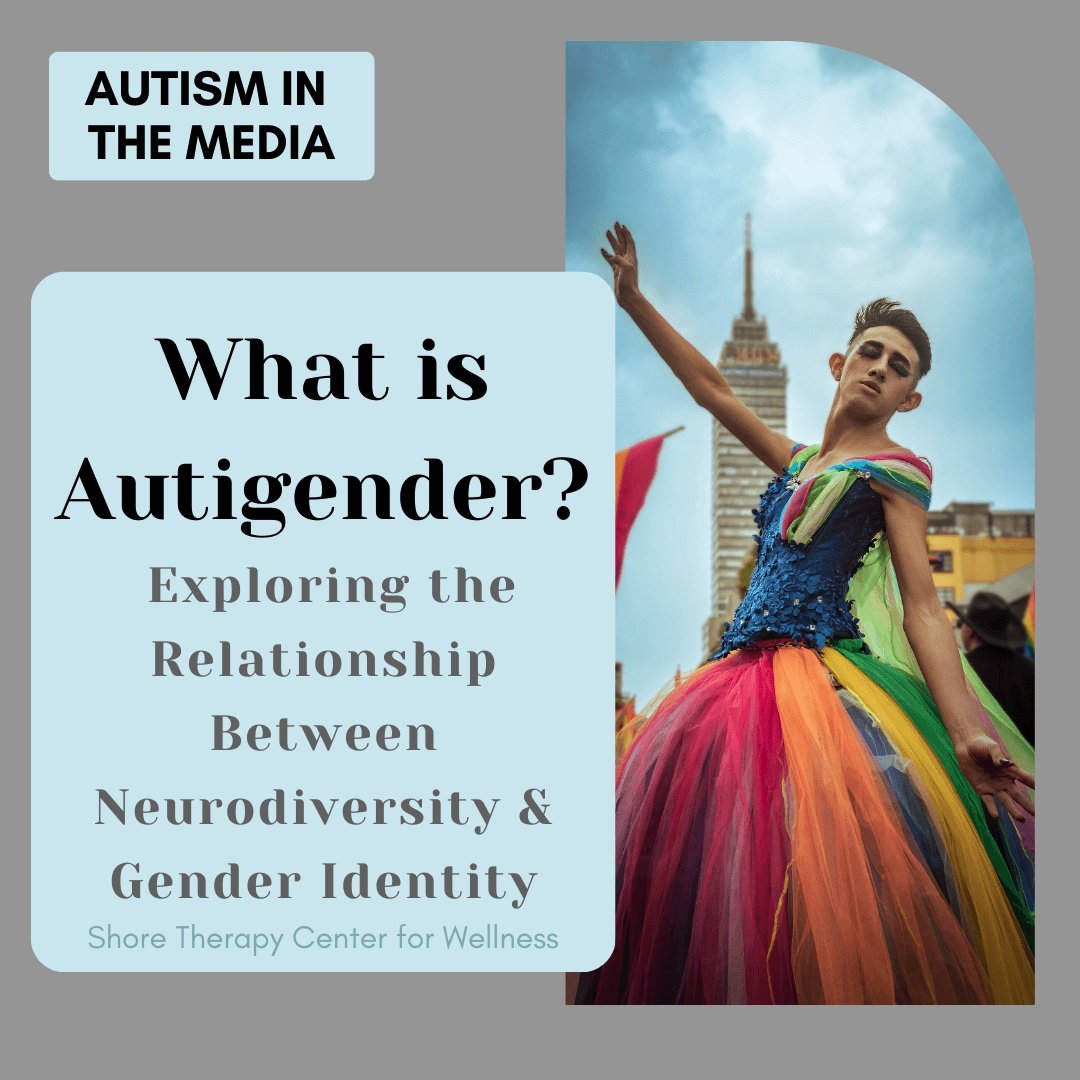What is Autigender?: Exploring the Relationship Between Neurodiversity and Gender Identity
Chicago Neurodiversity-Affirming Therapist Talks Autism and Gender Identity
Research exploring the gender identities of autistic and allistic (non-autistic) individuals has repeatedly demonstrated a significant correlation between autism and gender diversity that expands beyond the constructs of cisgender male and cisgender female. The largest study to date looked at data from over 600,000 adult participants. It found that nearly one in four people who identified as something other than cisgender, or the identity they were assigned at birth, were also autistic (1, 2).
It is unclear exactly why autistic people are more likely to relate differently to gender identity than allistic people. Some posit that the hyperconnected autistic brain views gender and identity in more nuanced ways than can be captured within the confines of a gender binary when relating to one’s self or to the people to whom one is romantically or sexually attracted. Lack of value of social conformity may make subscribing to socially-constructed ideas of what is “masculine” or “feminine” unrelatable or unimportant. Additionally, common aspects of autism such as different sensory sensitivities and needs may make adhering to stereotyped gender expectations or physical or sexual expression uncomfortable, inaccessible, or undesirable to autistic people (3,4).
LGBT and Autigender
Recognition of diversity within the experience of gender identity and expression is an important starting point when creating space for variations within the human experience of gender, attraction, connection, and self-expression. However, the current LGBTQIA+ labels for gender or sexual identity may still inadequately represent how a person’s autistic identity uniquely contributes to their experience and expression of gender.
Autigender is a term that is used by some autistic people to acknowledge that their experience of gender or sexuality is filtered through, and colored by, their autistic neurotype in ways that simply cannot be separated from one another.
Autigender can be a standalone label for one’s gender or sexuality; indicating that one simply does not relate to gender or sexuality in a way that can be easily understood using allistic definitions or constructs. Autigender can also be used as a qualifier attached to one’s other gender or sexual identities to suggest that a person identifies with a particular gender or sexual identity label but experiences or expresses that identity uniquely due to being autistic.
For instance, a person may identify as autigender cis female because they were assigned female at birth and connect broadly to a female gender identity, however, the way that they experience or express themselves as a female may be shaped by their autistic brain; it’s thoughts; and needs. This might mean that wearing makeup or nail polish is avoided due to sensory discomfort; they may speak in a direct and assertive way that does not conform to the current social norms for women and is perceived by others as masculine; or they may not connect or adhere to stereotyped gender roles of dominance and submissiveness in male/female interactions. These behaviors or expressions do not make their gender any less female, but the autigender label acknowledges that their relationship to their female gender and their gender presentation may be different than the concept of “female” that has been socially constructed based on allistic experiences or expectations.
What is Autigender? Men’s Health Article Dives Deeper
The idea and experience of autigender was recently explored in this article for Men’s Health. I was fortunate to be featured in the article and to contribute to the conversation. In addition to sharing views from neurodiversity-affirming therapists, the article centered autistic voices to give insights into the varied and unique experiences of gender and the intersection between gender and neurodiversity. It is a great resource for learning more about autigender as a gender label or construct to consider when conceptualizing the differences between how allistic and autistic people may relate to, experience, or express gender or romantic or sexual desires. Awareness and understanding of these differences without judging or pathologizing them is an important step in honoring the humanity of all people and the natural diversity of genders and neurotypes.
Affirming Therapy Online for Autism, Neurodivergence, and the LGBTQIA+ Community
Exploring aspects of identity and relationships through therapy can be useful for many people. Working with a neurodiversity-affirming and gender-affirming provider familiar with the possible interrelationship between neurotype and gender may be especially important for autistic or otherwise neurodivergent folx who may have felt misunderstood, marginalized, or pathologized, even in the context of their therapy experiences.
If you have struggled to find an affirming therapy near you or online, I may be able to help. Contact me for a free 15-minute phone consultation to talk about your experiences and needs. I provide affirming therapy for marginalized adults including affirmative LGBT and neurodiversity affirming therapy; therapy for parent burnout and caregiver burnout; therapy for trauma and PTSD; EMDR therapy; and online therapy to support the needs of people in over 35 states across the U.S.
Warrier, V., Greenberg, D. M., Weir, E., Buckingham, C., Smith, P., Lai, M.-C., Allison, C., & Baron-Cohen, S. (2020). Elevated rates of autism, other neurodevelopmental and psychiatric diagnoses, and autistic traits in transgender and gender-diverse individuals. Nature Communications, 11(1). https://doi.org/10.1038/s41467-020-17794-1
Dattaro, L. (2022, August 16). Largest study to date confirms overlap between autism and gender diversity. Spectrum. Retrieved March 9, 2023, from https://www.spectrumnews.org/news/largest-study-to-date-confirms-overlap-between-autism-and-gender-diversity/
Walsh, R. J., Krabbendam, L., Dewinter, J., & Begeer, S. (2018). Brief report: Gender identity differences in autistic adults: Associations with perceptual and socio-cognitive profiles. Journal of Autism and Developmental Disorders, 48(12), 4070–4078. https://doi.org/10.1007/s10803-018-3702-y
Cooper, K., Smith, L. G., & Russell, A. J. (2018). Gender identity in autism: Sex differences in social affiliation with gender groups. Journal of Autism and Developmental Disorders, 48(12), 3995–4006. https://doi.org/10.1007/s10803-018-3590-1

